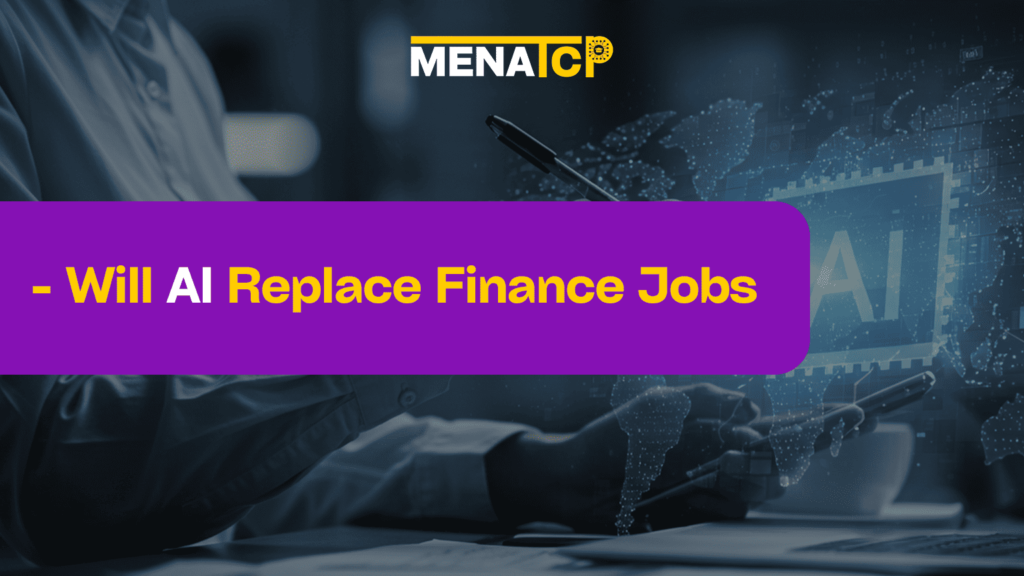The rise of artificial intelligence (AI) in the financial sector has started a talk about its potential to replace traditional finance roles. Just like any industry, AI is the new trend that is causing a shift in all markets. While AI tools for accounting and finance are reshaping the industry, these transformations raise questions about job security, as there is a possibility for some roles to disappear or change in nature.In this blog we will discover all the possible answers for this question.
AI is revolutionizing finance by automating repetitive tasks, improving accuracy, and enabling real-time data analysis. Artificial intelligence in accounting is increasingly used for tasks such as bookkeeping, payroll processing, and compliance reporting. Meanwhile, AI tools for accounting analyze large datasets to detect fraud, predict trends, and generate insights that were previously time-consuming.
While the use of artificial intelligence in accounting is increasing, there are critical roles that combine finance knowledge and technical expertise, making them resistant to AI automation. While artificial intelligence (AI) has made a significant role in automating many routine and repetitive tasks in the finance industry, there are certain roles that require a blend of financial knowledge and human judgment. Here are some examples:
1. Financial Planners/Advisors:
They Provide personalized advice and tailored financial plans according to individual needs and goals which requires a deep understanding of finance with human sentiments such as empathy and emotional intelligence.
2. Investment Bankers:
Assessing complex financial transactions and negotiating deals based on market needs, economic conditions, and investor sentiments requires human judgment in high-stakes scenarios, something that can’t be trusted with AI yet.
3. Risk Managers:
Risk managers need a lot of human judgement in which their job is to Identify and mitigate financial risks through comprehensive analysis and expertise in financial modeling requiring human interpretation and strategic decision-making.
4. Financial Analysts:
Analyzing financial data, evaluating investment opportunities, and providing insights that go beyond tasks that can’t be automated as they require critical thinking and industry expertise.
5. Compliance Officers:
The role of officers requires them to stay up-to-date with changing regulations, protect legal adherence, and manage ethical frameworks that demand human understanding and interpretation in complex scenarios.
6. Relationship Managers:
Building trust, understanding client’s needs and aspirations, and offering customized financial solutions rely on human connection and empathy.
7. Fund Managers:
They Make investment decisions, manage portfolios, and adapting to changing market conditions requires a combination of financial expertise, intuition, and scenario analysis.
8. Business Strategists:
A deep understanding of market trends, competitor analysis, and financial forecasts is crucial in tailoring long-term strategic plans that shape the future of the organization.
9. Chief Financial Officers (CFOs):
Overseeing financial operations, managing financial risks, and provide strategic guidance to achieve long-term financial objectives requires a comprehensive understanding of finance and business.
10. Financial Educators:
Providing financial knowledge, guiding individuals and businesses in making informed financial decisions, involves the human touch, mentoring, and personalized guidance.
While AI is changing the game in finance, it is unlikely to completely replace jobs in the sector. Instead, it will give jobs new roles. Using AI tools for accounting, repetitive and rule-based tasks are more likely to be automated, but jobs requiring critical thinking, emotional intelligence, and strategic insight remain unchanged and not replaceable.
For instance, financial advisors can use AI tools for accounting and finance to gather insights, but the ability to interpret data and provide personalized recommendations requires human expertise. Similarly, artificial intelligence in accounting can handle large amounts of data , but other areas require decision-making which needs human judgment.
AI is not a threat to finance jobs but a way for normal tasks to be enhanced and seen in a new light. The integration of artificial intelligence in accounting and finance will transform how tasks are performed, but the human factor and professionals ability of strategic decision-making remain irreplaceable. By adapting to these changes, finance professionals can use the benefits of AI in accounting while ensuring ethical and effective use. The future of finance is a combination between human expertise and AI ability to enhance and innovate, giving the industry greater efficiency while still being led by human professionals.
